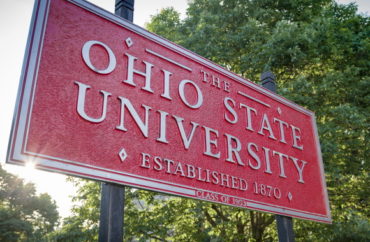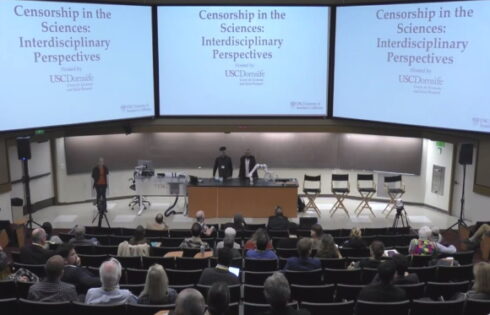
Five universities ‘updating scholarships to ensure compliance with the law’ in wake of Supreme Court decisions
Five public law schools in Ohio are ending their scholarships and programs based on race following a conservative think tank’s investigation.
The Buckeye Institute, based in Columbus, Ohio, launched the investigation this year into five law schools at Ohio State University, Cleveland State University, University of Akron, University of Cincinnati, and University of Toledo.
“Buckeye’s investigation was instrumental in the decision of the law schools,” Lisa Gates, vice president of communications at The Buckeye Institute, told The College Fix via email.
The think tank “sent public records requests to Ohio’s public law schools requesting information on race-based programs operated by the schools,” according to a March news release. Now, “[a]ll of the law schools are ending their discriminatory programs,” according to a November news release.
The think tank launched the probe “in response to the Supreme Court’s 2023 decisions in Students for Fair Admissions v. Harvard and Students for Fair Admissions v. University of North Carolina,” David Tryon, director of litigation at Buckeye, told The Fix via email.
These two decisions ruled that the use of race-based affirmative action programs in university admissions is unconstitutional, overturning 45 years of legal precedent.
Tryon told The Fix that the schools’ responses to Buckeye’s public records request revealed that they had been operating or participating in unconstitutional, race-based internship programs or scholarships.
Buckeye then told the schools that these programs breached Title VI of the 1964 Civil Rights Act, as well as the Equal Protection Clause of the Fourteenth Amendment to the Constitution. As a result, the five Ohio law schools are making the necessary changes.
Ohio State University is now “updating scholarships to ensure compliance with the law,” Benjamin Johnson, assistant vice president of media and public relations at OSU, told The Fix via email.
“While this work is underway, we continue to award scholarships and are managing scholarships on a case-by-case basis in an effort to provide all possible financial support without taking protected class into consideration,” Johnson said.
Tryon provided The Fix examples of specific scholarships and programs that were discontinued at three of the five law schools involved in the investigation, including the University of Cincinnati, University of Toledo College of Law, and Ohio State University.
UC ended six scholarships that had explicitly prioritized “minority or underrepresented students…based on race, color, or nationality,” according to information Tryon provided to The Fix.
For example, the Stanley M. Chesley and Hon. Susan J. Dlott Scholarship and Prize Fund used “preference to minority students when awarding scholarship.”
Similarly, the Florence Straus Fabe and George Van Antwerp Fabe Scholarships stated that “preference in the award shall be given to Black residents of the United States in their first year of law study.”
MORE: U. Illinois has 42 ‘illegal’ race, sex-based scholarships: federal complaint
The Jackson Lewis Scholarship Fund at UC stated that “the Donor prefers that the scholarship be awarded to a minority student who is interested in a career in employment law.” Tryon told The Fix that the university mentioned this scholarship in its public records response, yet the scholarship remained on their website after the fact. Buckeye ensured that the school both removed the scholarship and clarified with the public that the scholarship is no longer being offered.
Similarly, UT Law eliminated six of its “scholarships offered, sponsored, advertised, or supported by the Law School” that “previously gave a preference to minority or underrepresented students,” according to information Tryon provided.
Recipients for the BLSA/Torrence R. Greene Memorial Scholarship, for example,were “chosen based upon financial need, academic competence, and commitment to BLSA and the African-American community.”
In addition, the Eddie M. Cole Scholarship at UT Law was “given to African-American students, so long as such preference enhances the social, economic, or cultural diversity of the campus community.”
Lastly, three unconstitutional scholarships were discontinued at OSU, according to information Tryon provided.
One example, the Vorys George Corey Memorial Scholarship, was only offered to students “who identify as a member of: (1) a historically underrepresented racial/ethnic minority group, and/or (2) the LGBTQ+ community.”
In addition, the Taft Fellowship was awarded “to highly motivated, first-year law students who are members of historically underrepresented ethnic and/or racial minority groups.”
“Although the goals of these programs were laudable, it is a victory for the Constitution and the rule of law that all of the law schools ended these discriminatory programs or opened them to all applicants,” Tryon stated in the news release.
The Buckeye Institute has not launched further investigations at other schools, but still invites students to contact the institute if they believe they have been denied a scholarship based on race. This way, Buckeye can investigate these situations, according to Tryon.
Chance Layton, director of communications at National Association of Scholars, applauded “the end of racial preferences in Ohio law schools” as “a step forward for intellectual diversity and academic standards.”
Racial preferences can harm students by admitting those unprepared for college, leading to resentment and activism for lowered standards, higher dropout rates, and student debt without a degree, Layton told The Fix.
The Fix reached out to all of the Ohio universities ending race-based programs, the Cincinnati National Association for the Advancement of Colored People, the Black Lawyers Association of Cincinnati, and the Norman S. Minor Bar Association twice each via email for comment. None responded.
MORE: Students sue Education Dept. over race-based exclusion in scholarship program
IMAGE: University of College/Shutterstock
Like The College Fix on Facebook / Follow us on Twitter






Please join the conversation about our stories on Facebook, Twitter, Instagram, Reddit, MeWe, Rumble, Gab, Minds and Gettr.